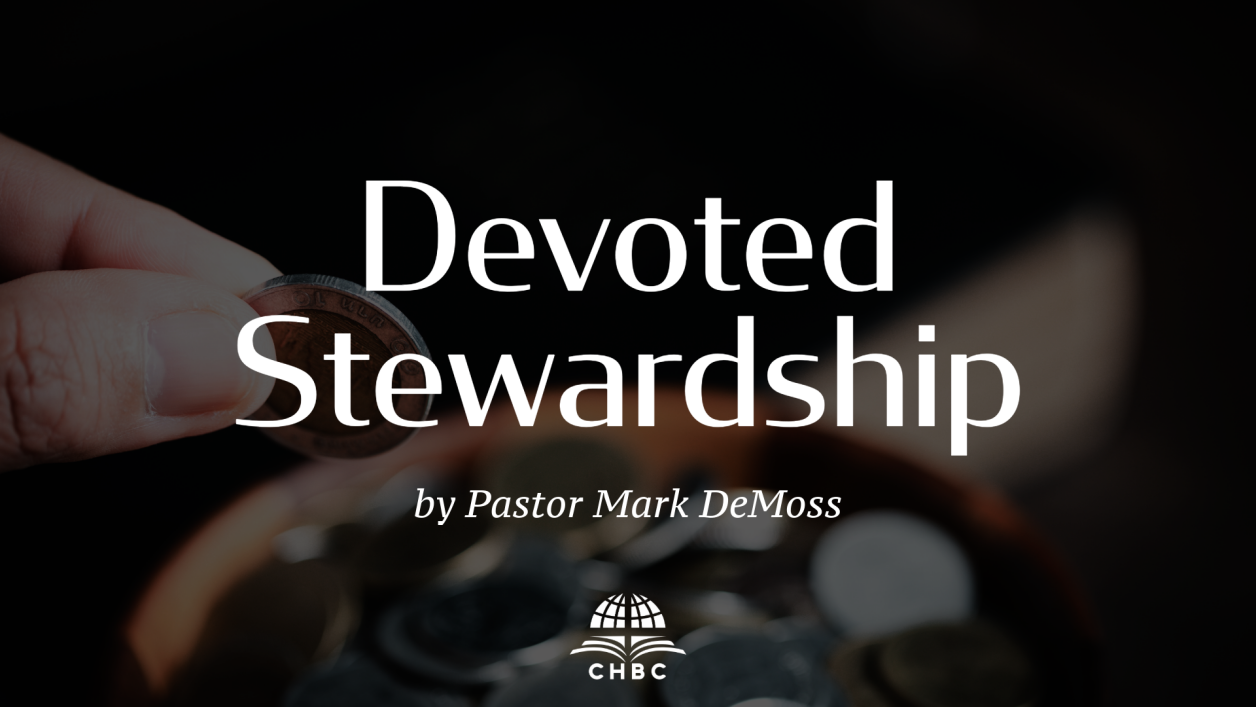
1 Peter 4:7-10, “The end of all things is near; therefore, be of sound judgment and sober spirit for the purpose of prayer. 8 Above all, keep fervent in your love for one another, because love covers a multitude of sins. 9 Be hospitable to one another without complaint. 10 As each one has received a special gift, employ it in serving one another as good stewards of the manifold grace of God.”
This was the text this past Sunday as we tried to apply the last of our Fundamentals of the Faith, Stewardship of Ministry. My greatest hope is that when we think about our life as stewards of God’s work among us that we will think in two directions. One direction is that we would steward the ministry God gives us like Jesus describes in the parable of the talents (Matt. 25:14-30). The pursuit of the faithful steward of Christ’s kingdom is to take what God entrusts to us, and to work for its growth, its flourishing, and its increase, so that we hear, “Well done, good and faithful slave. You were faithful with a few things, I will put you in charge of many things; enter into the joy of your master.”
The reward is based on faithfulness to the call, not growth in all things. As we said Sunday, there are many who show up at church wondering, “What is my ministry? Does my church need me?” Allow me to remind you of three ways your church needs you to minister every week, and in which you might find the greatest fulfillment of purpose as you serve the Lord.
- Arrive early and stay late – your ministry of being present before and after Sunday School and Worship will put you in a place to welcome guests, speak to the hurting, encourage the faint-hearted, and celebrate with the joyful. Hebrews 10:24-25 says, “and let us consider how to stimulate one another to love and good deeds, 25 not forsaking our own assembling together, as is the habit of some, but encouraging one another; and all the more as you see the day drawing near.” This is not just telling us that we should be “in church” but it is instead telling us how to “be the church.” Assemble in order to stimulate one another to love and good deeds. I cannot do that by arriving late and leaving early. I can be used of God to do this by arriving early and staying late.
- Pray to be burdened for someone – Before you walk into the building and start interacting with people ask the Lord to have a burden for someone that morning. That simple prayer, if prayed by every one of us, will open up a number of ministry opportunities every week. Imagine if we all came in looking for others who needed love, companionship, a listening ear, prayer, counsel, or physical aid in some way. If we ask God to show us those around us who He wants to care for, we will see them. Then the question becomes, when we see them, will we approach them? The Incarnation of Christ is God approaching the need of humanity with full abandon. He has redeemed us and given us His Spirit to continue to bring the presence of Christ into the lives of others.
- Have a real conversation – Train yourself to be comfortable with vulnerability. We do not have to walk around telling everyone everything. But we need to be comfortable when someone opens their heart to us. And we need to build a culture where it is normal to have spiritual conversations. When you are asked, “How are you doing?” Take the conversation beyond, “Fine. How are you?” Share something real and meaningful. You may not have a problem, or a confession to share, but give information, and hope for information from the person you are talking to. “I am fine,” says, I do not need to extend this conversation, and you would not really care if I told you what I am really thinking or feeling today. Ministry is stopped rather than facilitated. We have begun to dig the hole where we will bury the “talent” rather than risk investing the talent for the growth of ministry.
A second direction we need to think about when it comes to stewardship of ministry is about the investment of our financial resources. We are to be stewards of all God gives us. Our homes, our cars, our investments, our time, our efforts, our relationships, our income, and our bank accounts all come from Him, and we are therefore simply stewards of these things, not owners of any of them. So, we cannot think about stewardship without thinking about our responsibility of tithing and giving through the local church.
I believe a Christian should be giving 10% of gross income as a starting point of stewardship and then be looking for opportunities to give to other kingdom causes in the church or other parachurch ministries as the Lord leads by conviction. Why should New Testament believers honor the tithe? Sunday, I provided this list for your consideration, and I put it before you again for your on-going thought.
- Tithing honors an OT principle, which Jesus honored and commended to His followers
- Tithing and giving honors God as the owner of all
- Tithing and giving fights against coveting
- Tithing and giving puts a control on ever-expanding spending
- Tithing and giving is the God-ordained means for good deeds and gospel expansion
- Tithing and giving is God’s way of providing for you
- Tithing and giving is an important means of expressing and strengthening our faith in God
The New Testament expression of the Christian is one as a steward. We are created and redeemed by the Holy God of the universe, who rules and reigns by the Word of His power. We are not serving Him by allowing Him to have access to us and our stuff. We serve Him by faithfully stewarding what He has graciously provided for our good and for His glory.
By His Grace and For His Glory,
Pastor Mark

